Does Green Tea Help Acne?
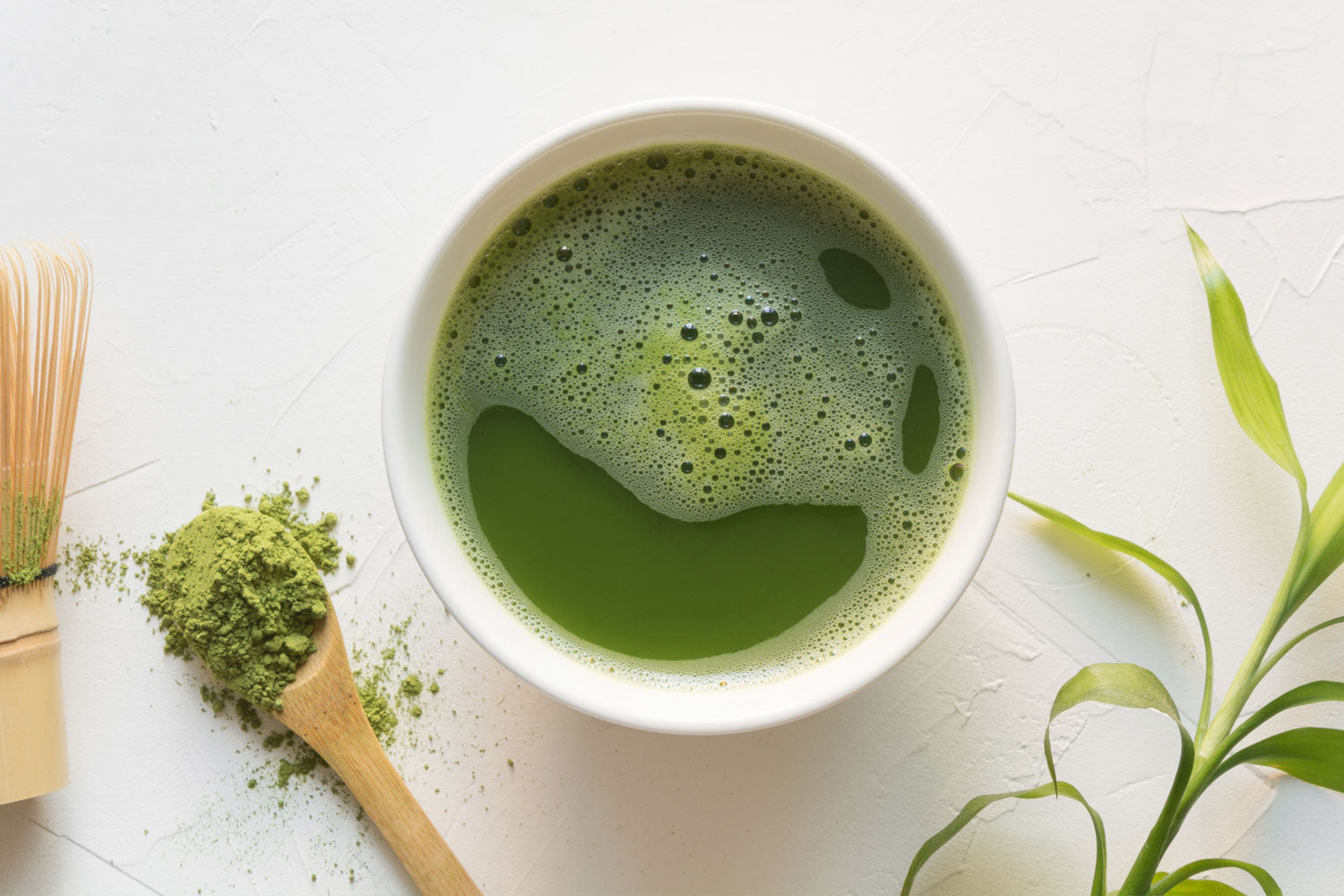
Those seeking any solution to acne breakouts often question whether or not household remedies can help. Oftentimes you hear the question "Does green tea help with acne?" According to some, green tea has the power to combat breakouts. There’s no doubt that green tea has some great health benefits; from cancer to diabetes and heart disease to weight loss, this natural ingredient has been purported to provide some amazing benefits for holistic health. So how does it stack up against breakouts?
Green Tea and Acne
There are many foods and beverages that get a bad rap when it comes to breakouts. Does chocolate cause acne? The jury is still out on that one. Are alcohol and acne related? It turns out too many drinks can result in blemishes. However, there are plenty of foods and supplements that play a positive role in the incidence of breakouts, including green tea.
Green tea has been scientifically proven to provide numerous benefits for skin health, and is often cited as one of the best ways to treat acne. According to the U.S. National Library of Medicine, green tea for acne can reduce inflammation, which is directly correlated to the clear skin process and plays a role in the frequency and severity of acne breakouts. Green tea can relieve acne symptoms since it's filled with antioxidants that fight free radicals and nurse damaged skin to heath. Acne treatment products that contain green tea, like bioClarity's 3-step skincare routines, as well as other soothing compounds can help alleviate acne and fight breakouts better than other common remedies including Vitamin C.
Can Drinking Tea Cure Acne?
Drinking green tea for acne can help reduce breakouts. Drinking tea helps cut down on sebum production and reduces inflammation while simultaneously improving your immune system. Combining these three benefits means great things for fighting acne, and drinking tea can help cure acne woes.
How are Acne and Green Tea Related?
Before you run out to buy a collection of tea bags, it’s important to answer the following question: "Is green tea good for acne?". Learn how and why green tea and acne are related, and just how this natural ingredient can help alleviate acne flare-ups. From topical treatments to cups of tea, there are many ways to benefit from green tea.
Green Tea’s Effect on Insulin and Blood Sugar
High insulin and blood sugar levels can worsen acne, so it’s important to keep blood sugar low and insulin levels stable to ensure your skin looks its best.
A study from Japan found that participants who drank more than 6 cups of green tea per day reduced their risk of developing Type 1 diabetes by a whopping 33 percent. While more research must be completed, plenty of studies have seen a positive correlation between green tea consumption, blood sugar levels, and insulin resistance.
Green tea has also been proven to help weight loss; because weight gain and obesity are correlated with high blood sugar levels and insulin resistance, losing weight can help greatly with overall skin health.
Acne patients who struggle with severe systemic inflammation can find great benefits in a cup (or 6!) of green tea. Regular consumption of green tea can provide anti-inflammatory benefits, and provide a significant portion of strong antioxidants to aid in skin health, both in appearance and feeling.
Before You Put on the Kettle
Green tea can have positive effects on skin health, but drinking numerous cups won’t automatically clear your skin. However, the green tea extract and green tea oils found in acne treatments can significantly help reduce the appearance of acne blemishes and fight dryness and irritation that comes with acne inflammation. Topical treatments can have a much larger effect on acne breakouts, but a combination of using green tea for acne topically alongside its consumption can help the skin from the inside out.
In December 2012, the Journal of Investigative Dermatology published a two party study out of South Korea. In this study, researchers applied cream containing an antioxidant called epigallocatechin-3-gallate (EGCG) to the ears of rabbits. The results found that this application helped reduce the size of sebaceous glands. The smaller the glands, the less sebum produced.
In the second portion of the test, researchers incubated human sebocytes in insulin-like growth factor 1 hormone. Multiple studies have shown that IGF-1 can increase sebocyte growth, and is linked to oily skin and acne. When EGCG was added to the mix, researchers observed a decrease in IGF-1 induced cell growth and sebum production. As those with acne prone skin know, excess sebum can result in painful breakouts and blemishes that are both under and on top of the surface of the skin, so finding ways to cut down on production of this natural oil can immediately begin alleviating a breakout.
In October 2012 of the same year, a South Korean study found that EGCG was a viable treatment for dealing with sebum production, P. Acnes bacteria, and sebum production. This time, the test was performed on human participants. In this split-face study, participants applied two creams to the face, one on the left side and one on the right side. One of these creams contained EGCG, while the other was a placebo cream with no active ingredients. Results found a significant difference between the two; the cream containing EGCG saw a major reduction in acne.
How does this stack up against popular synthetic acne fighters? Take benzoyl peroxide into consideration. You’ve likely seen this ingredient touted as an acne miracle worker, but it may be that its results aren’t worth the side effects.
To study the power of green tea for acne versus benzoyl peroxide, the American Academy of Dermatology created a skin cream that consisted of 3 percent green tea extract. They then compared the effects of the application of this preparation against benzoyl peroxide solutions. The researchers set up two groups of test study candidates; participants in the first group were given green tea lotion, while the second group was provided with a benzoyl peroxide cream. Results found that while both products were effective in combating acne, the green tea lotion resulted in far fewer side effects, while those in the benzoyl peroxide group saw a great deal of flaking, irritation, burning and dryness. It’s also worth noting that green tea showed results much quicker than antibiotic cream, meaning it could be more efficient at soothing the side effects of a breakout than many of the acne treatments on the market today.
Green tea extract has been observed to provide antibacterial benefits, helping to cut down on the bacteria found on the surface of the skin and deep within the pores. As supported by the Journal of Investigative Dermatology, green tea simultaneously combats bacteria and reduces inflammation, quickly and efficiently diminishes the appearance of blemishes, and soothes irritated skin worsened by a breakout.
Green Tea Provides Sun Protection
You may be wondering "Is sun good for acne?" but let's not forget sun exposure can significantly affect our skin in a negative way. It turns out green tea extracts can protect the skin against this damage. The phenols found in green tea have the ability to help the skin repair the damage done by sun exposure. In one study, skin was pre-treated with green tea extracts. While the pre-treatment didn’t protect the skin from UV rays, it did have some great effects on the skin after the damage was done. Skin cells treated with green tea extract began to repair their DNA immediately to help restore proper function, while skin cells that weren’t treated with the extract became inflamed.
By using green tea extract daily, you can help protect your skin against the long-term effects of sun exposure, including hyperpigmentation. Hyperpigmentation is a result of UV rays; as the skin works to protect vulnerable bits of skin, it will build up a concentration of melanin in the area. This melanin can cause these areas to become darker than the surrounding skin, resulting in dark marks that are left behind long after a sunburn has faded or acne has cleared. Green tea extract provides some essential after-the-fact sunburn protection. While it’s always advisable to protect your skin with sunscreen, regular use of green tea extract can help ease the healing process by aiding the burnt skin in repair.
Does Green Tea Work Better for Certain Skin Types?
The relationship between green tea and acne is complicated, but numerous studies show that green tea has the power to calm the skin and minimize the appearance of acne blemishes. While there is much research proving that green tea extract can provide wonderful benefits for the skin, green tea moisturizer or a cold tea bag alone won’t do the trick.
Green tea alone is not a fully effective acne fighter on its own. Its soothing properties can have a wonderful effect on acne inflammation and the presence of oil, but more powerful acne fighting ingredients are essential to successfully combat current and future breakouts. However, not all green tea-containing products were created equally. There are certain acne treatments on the market that use harsh ingredients like benzoyl peroxide. The question of benzoyl peroxide vs. salicylic acid often pops up when choosing the right acne-fighting solution but it's important to note that products containing benzoyl peroxide can actually make your skin feel and look worse. This harsh ingredient dries out the skin severely; while great for drying out oily pores at first, the sebaceous glands may be triggered to produce even more sebum if the skin becomes too dry. Excess sebum production can result in clogged pores and make acne worse. Emollients are important for getting rid of dead skin cells and clearing out pores, but benzoyl peroxide comes with far too many side effects to make it the best acne treatment for all skin types. Instead, those with acne should look for products that contain salicylic acid.
Clearer skin in as little as two weeks.
3-step ritual with nutrient rich botanicals including green tea extract and the power of Floralux® to treat, soothe, and calm skin.
Learn More
Our Clear Skin Routine contains the highest allowable amount of salicylic acid. It also harnesses the power of green tea extract in Cleanse, a soothing vegan face wash designed to work in conjunction with Treat, a gentle but effective acne treatment gel. Salicylic acid works to slough off dead skin and penetrate pores to avoid blockages that can result in pimples, leaving the skin clean and clear. The soothing Restore gel then uses naturally-derived ingredients, such as witch hazel, licorice root, and Floralux from chlorophyll to help nourish the skin and restore its natural glow.
Get on the path to clear skin with bioClarity. Whether you have oily, combination, normal or dry skin, our vegan and cruelty-free skincare products can help you achieve beautiful, radiant skin.

Abby Vinas
Abby Vinas has long been an active member of the holistic health community, advocating in favor of its benefits to both our physical and emotional well-being. Her commitment to leading a healthy lifestyle has made her an authority on self-care practices. Abby is passionate about fitness, nutrition, and proper skincare, and is also an avid lover of avocado toast and dog-petting.
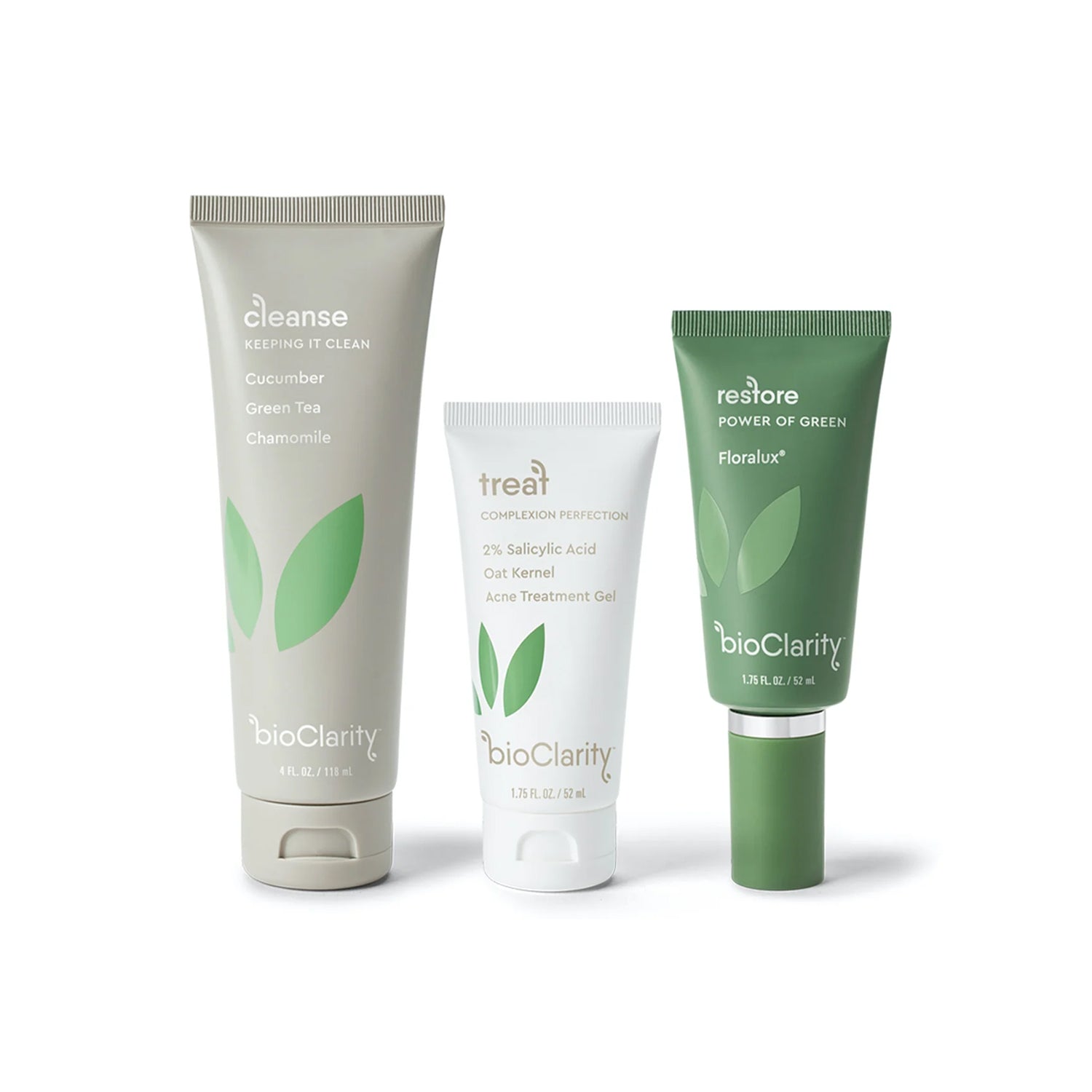
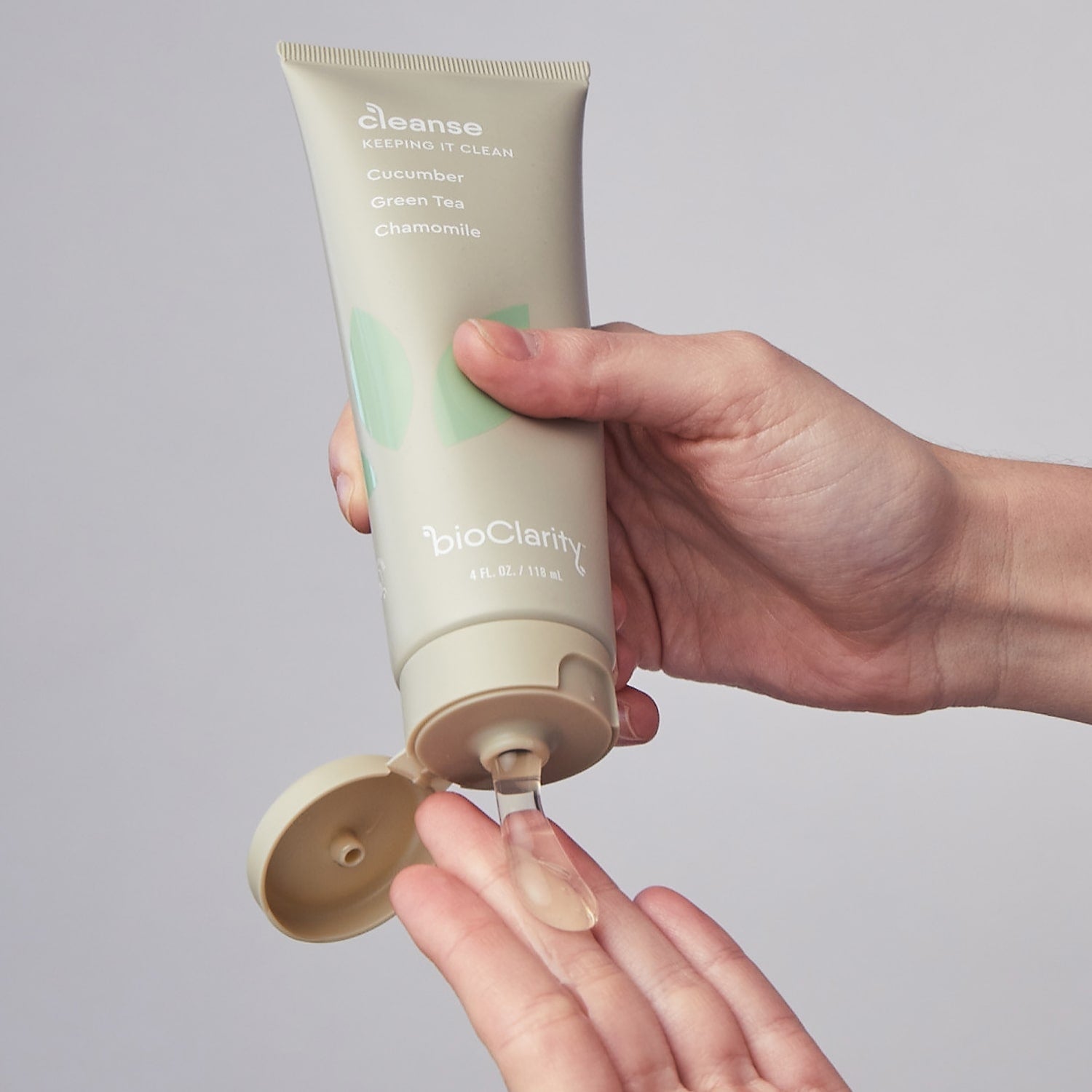
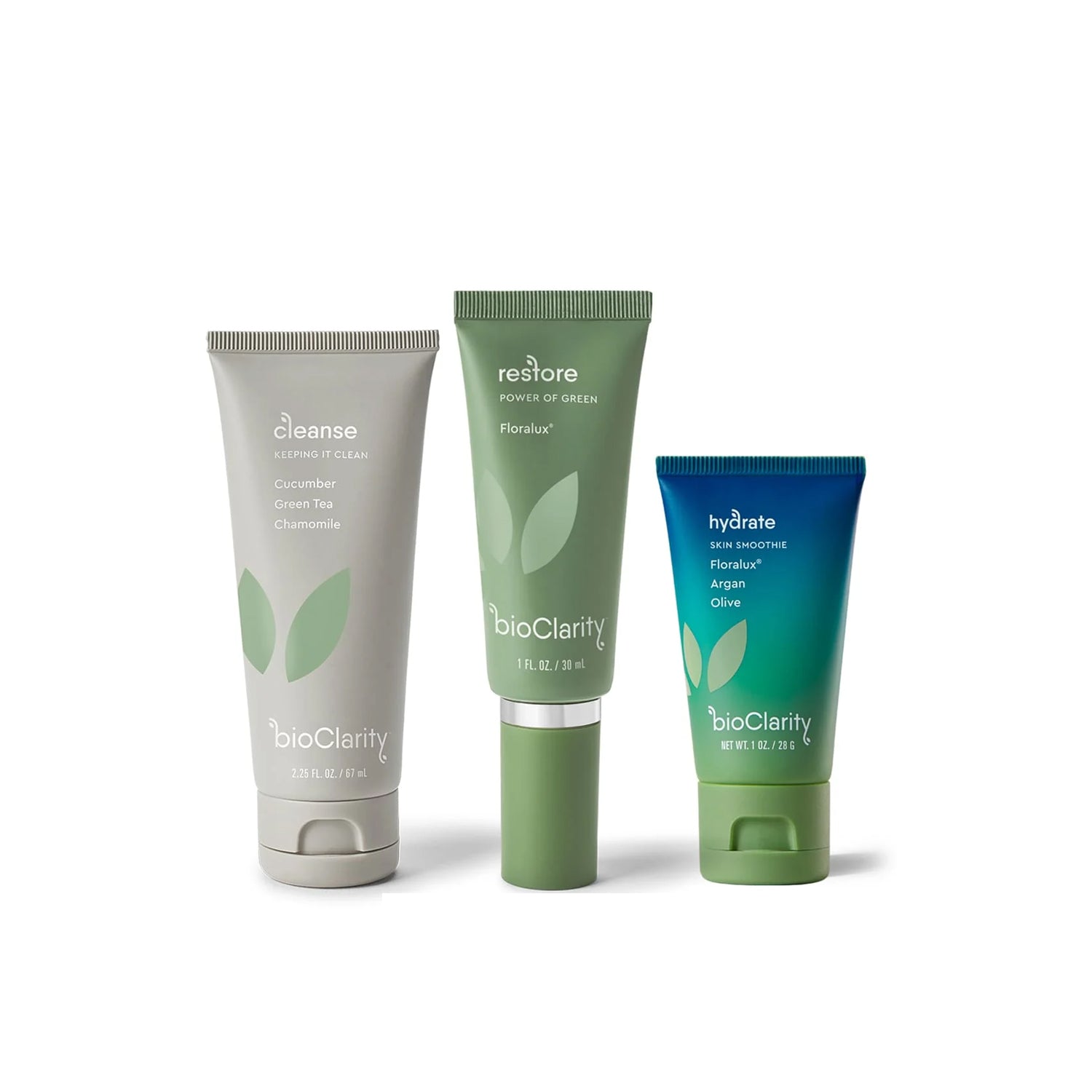
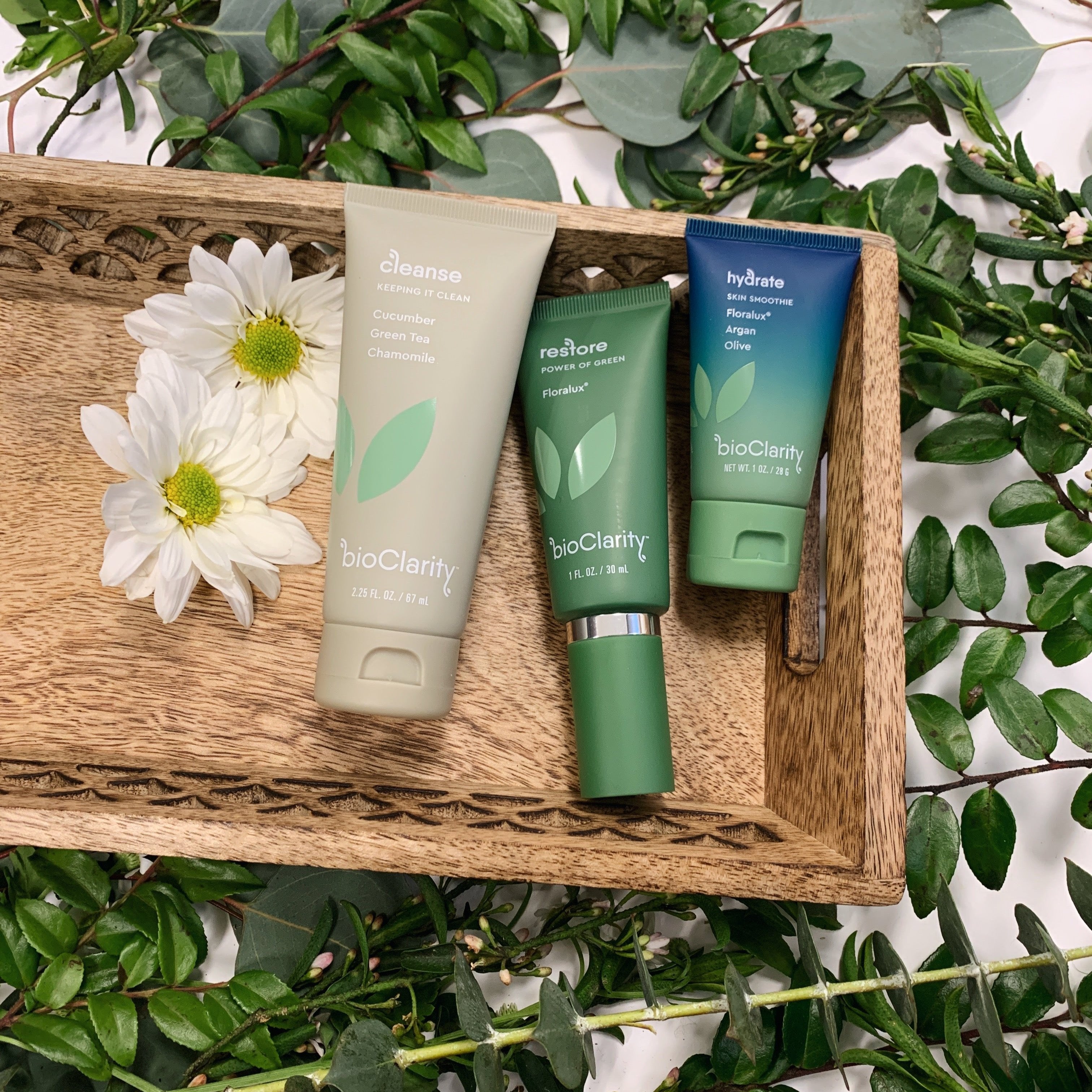
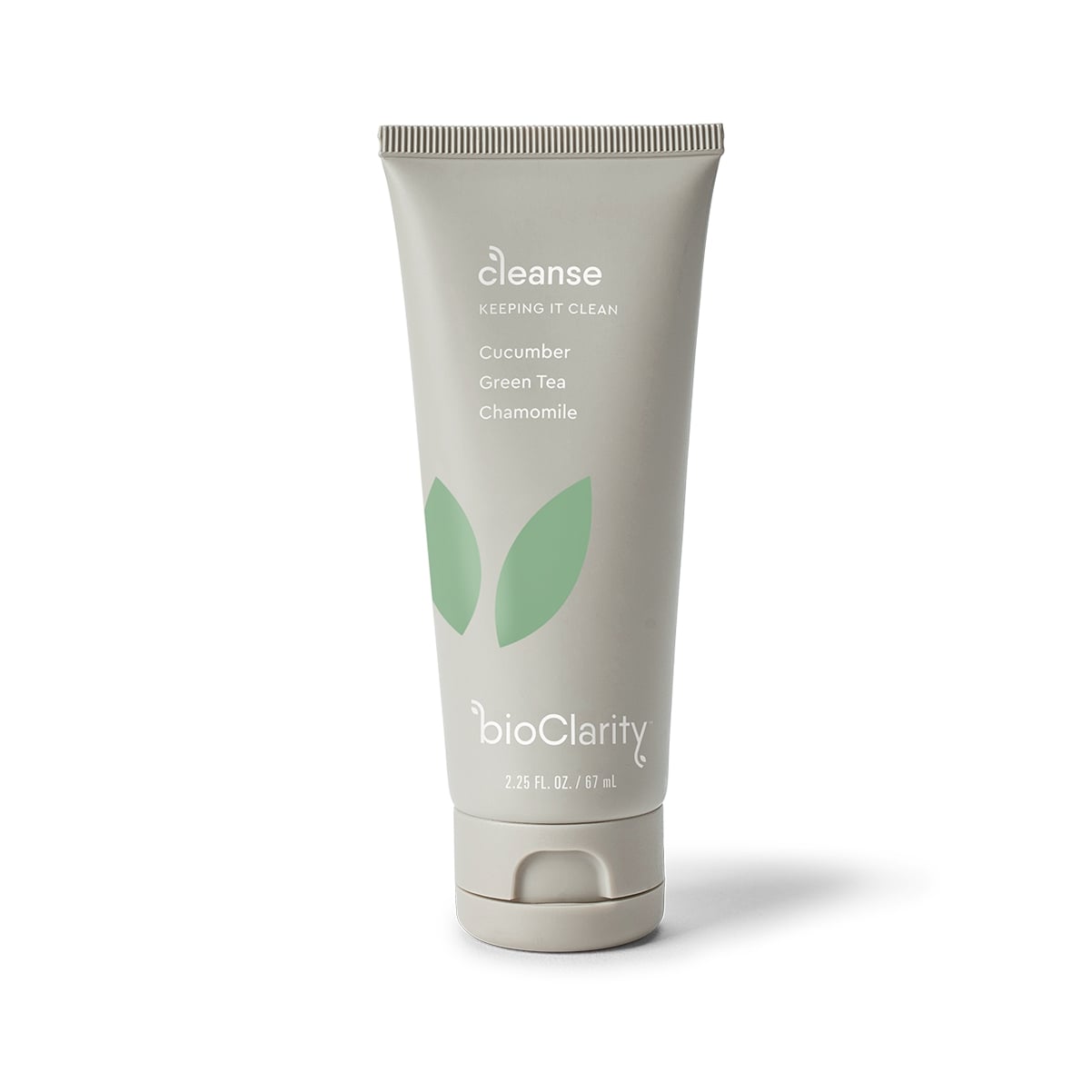
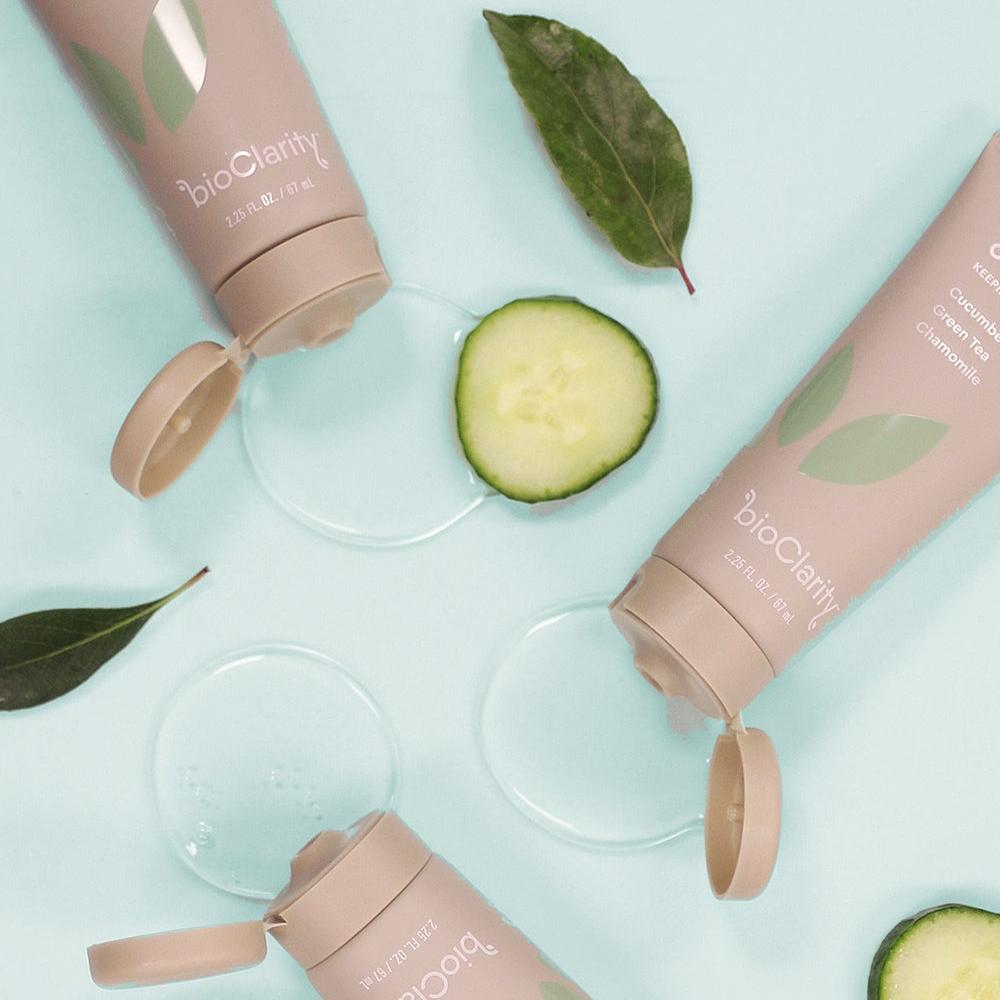



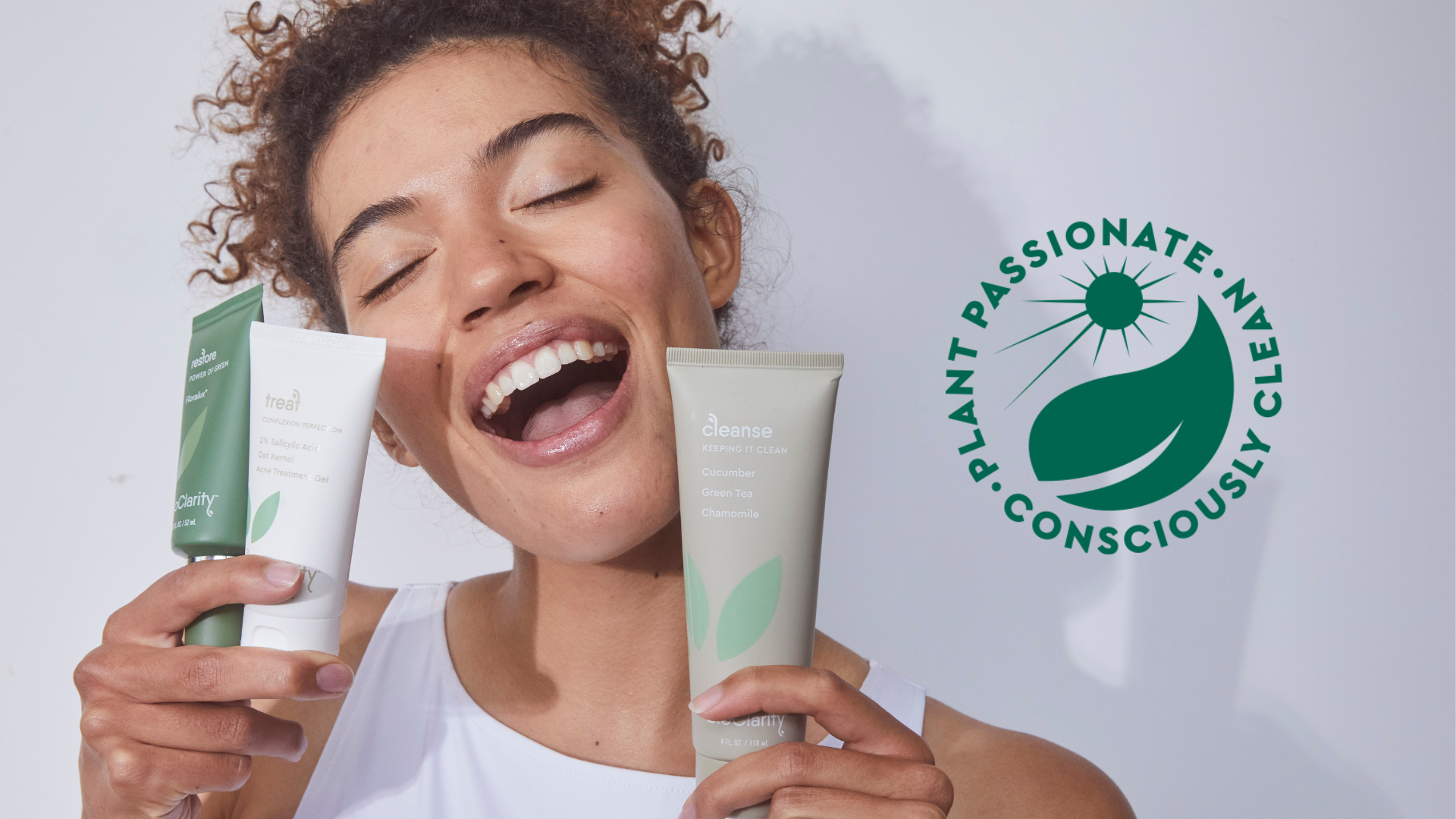

Comments